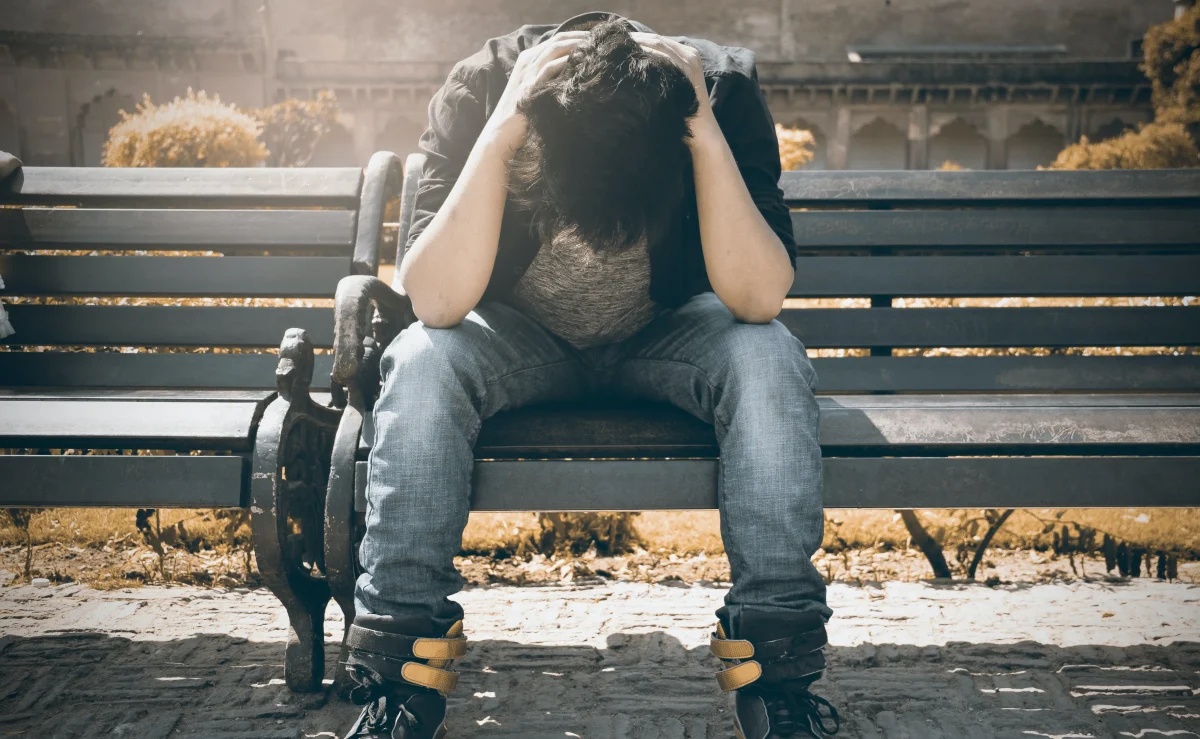
Take Control of Your Life Today
Table of Contents
Are you or someone you know struggling with cannabis addiction? Cannabis use can be a slippery slope, and it can be difficult to know when to seek help. While it may seem harmless at first, cannabis addiction can have serious consequences for both your health and your relationships. If you think that you or someone close to you may be suffering from an addiction to cannabis, we can help.
CATCH Recovery London’s screening method is a sure way to discover if your relationship with this substance is healthy. This said, please note that cannabis, in most of its forms, is illegal in the United Kingdom and any quantity can get you in trouble.

Download Brochure
What Is Cannabis?
Cannabis belongs to the Cannabaceae family and is a genus of flowering plants. The three main forms that we know of, and many abuse for recreational purposes, are Cannabis sativa, Cannabis indica and Cannabis ruderalis.
The most well-known cannabinoid is delta-9-tetrahydrocannabinol (THC), which is responsible for the high associated with recreational use. Another prominent cannabinoid is cannabidiol (CBD), which has gained attention for its potential therapeutic benefits without producing a high.
Cannabis is typically consumed by smoking the dried plant material, but it can also be ingested through edibles or oils. Different strains of cannabis can have varying ratios of THC and CBD, which can produce different effects on the mind and body. In the UK, we already have many consumables which use CBD in their ingredients and advertise it openly.

While cannabis is increasingly being legalised for medical and/or recreational use in various countries, it remains illegal in the United Kingdom. The health risks and addictive potential of cannabis use are still being studied, and it is important to approach cannabis use with caution and to only consume it through legal and regulated means.
Legal Status
As per the Misuse of Drugs Act 1971, Cannabis is a Class B and according to the Misuse of Drugs Regulations 2001, it is a Schedule 1 drug in the United Kingdom.
Schedule 1 includes drugs such as cannabis that are not, conventionally, used for medical purposes. Possession and supply are prohibited without specific Home Office approval.
If you are caught in possession of a Class B drug, you are facing up to five years in custody, an unlimited fine or both. However, the rules are even more severe if you are caught with a quantity which officials would consider for supply, production and importation. The charges here vary between 14 years in custody, an unlimited fine or both.
Mind-Altering Effects of Cannabis
Cannabis has the ability to produce a range of psychoactive effects, including feelings of euphoria, relaxation, happiness, and altered perception of time and space.
These effects are caused by the way cannabis interacts with the cannabinoid receptors in the brain and body. THC binds to these receptors, leading to the release of dopamine, a neurotransmitter associated with pleasure and reward.
This release of dopamine is what produces the pleasurable sensations that many cannabis users report feeling.
The mind-altering effects of cannabis can lead to negative consequences such as cognitive function impairment, making it difficult to think clearly or make sound decisions, and can have a negative impact on memory functioning, leading to difficulty with recall and concentration. Even where legal, it is recommended that cannabis is not consumed by people whose brain is still in development or during pregnancy.
Excessive cannabis use can lead to a range of negative physical symptoms:
- increased heart rate
- inconsistent blood pressure
- respiratory issues
Long-term cannabis use has also been associated with:
- decreased motivation
- increased anxiety and depression
- impaired emotional regulation
It is important to remember that the drug can have negative consequences for both mental and physical health. As such, it is crucial to use cannabis responsibly and seek professional help if you experience negative symptoms or signs of substance misuse. With proper counselling and therapy for addiction to cannabis, you can work towards overcoming your dependence on this substance and go back to living a fulfilling life.
Cannabis Addiction and the Brain
Studies using fMRI have found evidence of emotion dysregulation in chronic cannabis users. These studies show increased resting-state functional connectivity between the posterior cingulate cortex and other regions of the default mode network, as well as an anticorrelation between PCC activation and insula activation. This suggests that cannabis may enhance visceral sensations via insula activation to modify the state of effect. These patterns of connectivity can last one month after cessation of cannabis use. In another study, cannabis-dependent subjects showed larger increases in medial orbitofrontal cortex activity in response to negative emotional stimuli. This suggests the existence of persistent emotional processing alterations in cannabis-dependent users even after cessation of cannabis use.

Signs of Cannabis Addiction
One of the primary indicators of cannabis addiction is a compulsive desire or uncontrollable urge to use cannabis regularly. If you feel a strong need to use the drug regardless of the potential consequences, you might be addicted. Such consequences include:
- Problems at work such as being late or having issues concentrating
- Missing out on appointments and having problems keeping up with timelines
- Being easily irritable and suddenly unable to show understanding for others
- Lacking interest in a professional, relationship or other personal goals which would improve your quality of life
Another sign of cannabis addiction is a tolerance to the drug resulting in the need for a higher dosage to achieve the same effects. With continued use, you may need to consume larger quantities of cannabis more frequently, leading to increased side effects and negative consequences.
Withdrawal symptoms are also an indication of cannabis addiction, including irritability, insomnia, appetite suppression and cravings. Withdrawal symptoms can further perpetuate the cycle of addiction as you may go back to cannabis in order to alleviate the discomfort associated with stopping.
Other common signs of cannabis addiction include a preoccupation with obtaining and using cannabis, neglecting responsibilities and interests and spending excessive amounts of time and money on obtaining the drug.
If you or someone you know exhibits any of these signs, it may be indicative of cannabis addiction. Seeking professional help from trained therapists, counsellors, or addiction specialists can provide an opportunity to explore and address the root causes of the addiction and ultimately help with recovery. At CATCH Recovery we offer holistic and psychotherapeutic solutions for cannabis misuse and addiction. Contact us to learn more about our tailored counselling programme.

Take the First Step Today
Therapy in Cannabis Addiction Treatment
There are various types of therapy that can be effective in addressing the psychological and social symptoms of cannabis addiction, and our team is highly experienced in providing a multifaceted experience for those who come to us for cannabis addiction counselling.
One approach that has shown promise in treating cannabis addiction is behavioural therapy. This type of therapy helps you develop new coping mechanisms and strategies for managing triggers and cravings. It can be particularly effective in addressing the underlying psychological issues that may be fueling your addictive behaviours.
Family therapy can also be beneficial for your personal life as it helps work out problems with your family and rebuild relationships that may have been damaged by your drug use. By supporting both you and your loved ones, family therapy can create a strong foundation for long-term recovery.
Our group therapy sessions, usually based on the 12-step approach, provide a sense of community and understanding as you can navigate the challenges of addiction and recovery alongside a group of peers.
Cannabis Addiction Counselling and Confidentiality
For us at CATCH Recovery Lonon, confidentiality is a crucial component of cannabis addiction counselling. It is important for us that you feel safe and secure when you seek out our counselling services.
Please know that your information will not be shared with others without your express permission. We consider secure and confidential counselling services essential for creating a sense of safety and trust. Having a sense of control and freedom is vital for successful long-term recovery.
Seek Out Cannabis Addiction Support Today
If you think this page might be about you, please reach out to us. We can help you define your cannabis use and find a working counselling programme that can help you feel better about yourself without resorting to external stimuli such as Cannabis. We are here for you!